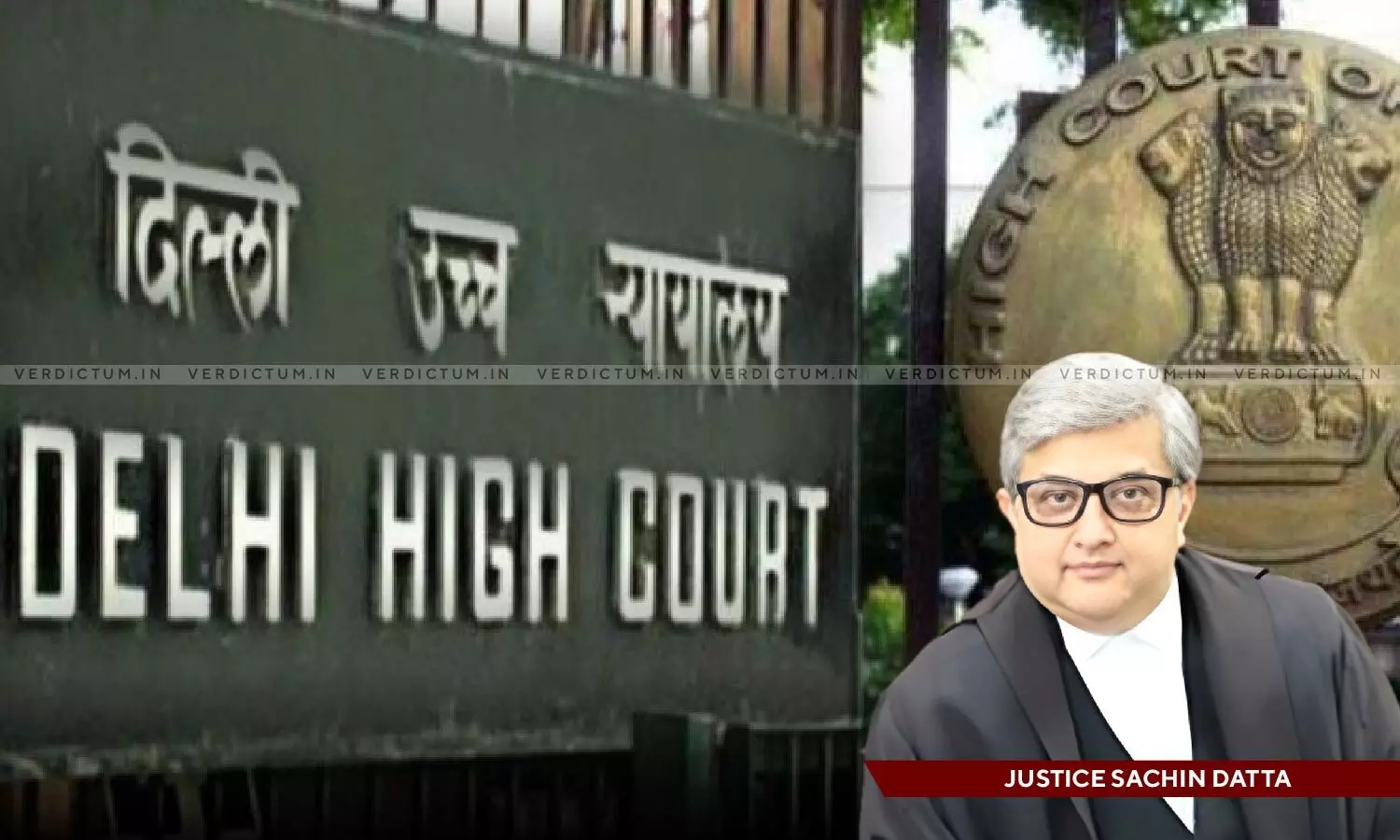
Mere Disability Does Not Deprive Person Of Constitutional Right To Practice Any Profession Or Carry Out Any Trade Or Business: Delhi HC
 |
|The Delhi High Court emphasized that mere disability does not deprive a person of their constitutional right to practice any profession or carry on any occupation, trade, or business.
The Court dismissed a Revision Petition challenging the order of the Rent Controller, whereby an eviction order was passed in favor of the Respondent/landlord and against the Petitioners/tenants. The Court emphasized that the Petitioner’s argument, that the landlady’s son was vision-impaired and hence wouldn't be able to handle business, undermines constitutional principles and violates the objectives of the Rights of Persons with Disabilities Act, 2016.
Justice Sachin Datta noted, “Mere disability of a person does not deprive such a person of his constitutional right to practise any profession, or to carry on any occupation, trade or business. This submission on behalf of the petitioners not only undermines sacrosanct constitutional principles, it also runs afoul to the objectives and provisions of the Rights of Persons with Disabilities Act, 2016”.
Advocate Arunima Dwivedi appeared for the Petitioner, and Advocate Lalit Gupta appeared for the Respondent.
The Petitioner approached the High Court by way of a Revision Petition challenging the order passed by the ACJ-cum-ARC (Rent Controller), whereby an eviction order was passed under Section 14(1)(e) of the Delhi Rent Control Act, 1958 (DRC) in favor of the respondent/landlord and against the petitioners/tenants. Respondent had filed an eviction petition before the Rent Controller claiming that her son, who depends on her, needs the tenanted premises to start his business. The Petitioner contended that the son was visually impaired and therefore, would not be able to run the business.
The Couer held that the son's visual impairment should not prevent him from using the property to run his business. The Court rejected the Petitioner's argument that the son's impaired vision rendered him unfit to manage a business.
The Court noted that the son was successfully managing multiple businesses from different shops. The Court referred to the case of Abid-Ul-Islam v Inder Sain Dua [(2022) 6 SCC 30] and noted that the ability to intervene in revisional jurisdiction is limited and should only occur in cases where there is an obvious error in the record. The Court also reiterated that Section 14(1)(e) of the DRC Act also applies to commercial properties that are rented out.
The Court noted, "With respect to the contention of the petitioners that Section 14 (1)(e) of the DRC Act is applicable only to residential premises and not to commercial premises, the law is well settled that Section 14(1)(e) of the DRC Act is applicable to tenanted premises let out for commercial purposes as well".
“The Supreme Court, in Abid-Ul-Islam vs. Inder Sain Dua has emphasised that the scope of interference in revisional jurisdiction is very restricted, and except in cases where there is an error apparent on the face of the record, this court would not proceed to disturb the findings rendered by the rent controller”, the Court observed.
The Court noted that denying the right of a person with a disability to carry on any trade or business would go against the constitutional guarantees provided under Articles 14, 19, and 21. Therefore, the Court noted that it would be a step backward to not allow the son, who has low vision, to use the premises for his business, as his need for the premises is genuine.
Accordingly, the Court dismissed the Petition.
Cause Title: Santosh Bhutani & Anr. v Savitri Devi Through LRs